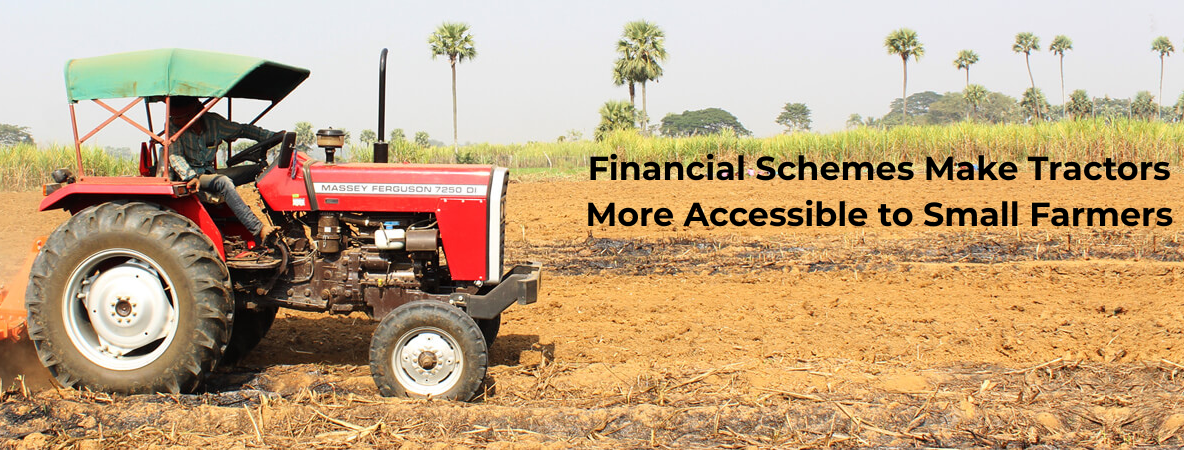Financial schemes are playing a transformative role in making tractors more accessible to small and marginal farmers in India, enabling them to embrace mechanization and improve agricultural productivity. Recognizing the challenges faced by farmers in acquiring expensive machinery, the government, financial institutions, and tractor manufacturers have introduced various financing options, subsidies, and innovative schemes to ensure affordability and ease of access.
Government initiatives like the Sub-Mission on Agricultural Mechanization (SMAM) provide significant subsidies ranging from 40% to 60% on the purchase of tractors and other farm machinery, reducing the financial burden on small farmers. Under schemes like PM Kisan Samman Nidhi and Rashtriya Krishi Vikas Yojana (RKVY), funds are allocated to promote farm mechanization, particularly in states with low levels of agricultural equipment adoption. Additionally, state governments offer region-specific subsidies and grants to encourage farmers to invest in tractors that suit local farming needs.
To address liquidity constraints, financial institutions such as public and private banks, NBFCs (Non-Banking Financial Companies), and rural cooperative banks offer low-interest loans, flexible repayment options, and long-term financing for tractor purchases. Programs like the Kisan Credit Card (KCC) and special agricultural loan schemes ensure that small farmers have access to credit without excessive paperwork or collateral requirements. These financing models empower farmers to purchase tractors without straining their limited financial resources.
Furthermore, the rise of Custom Hiring Centers (CHCs), supported by government schemes, enables small farmers to rent tractors and other high-cost equipment at affordable rates. This shared-access model reduces upfront costs and allows farmers to benefit from mechanization without full ownership. Tractor manufacturers are also partnering with financial institutions to provide zero-down payment offers, attractive EMIs (Equated Monthly Installments), and bundled packages that include maintenance and insurance.
Innovative financing platforms and Agri-Fintech startups are playing a growing role by offering digital solutions for quick loan approvals, personalized financing plans, and credit access based on crop cycles and farmer income patterns. These advancements ensure that even smallholder farmers in remote regions can obtain financial support for tractor ownership.
By combining subsidies, accessible credit, and rental models, these financial schemes are driving the adoption of tractors among small farmers. This not only enhances farm productivity and efficiency but also reduces labor dependency, supports timely agricultural operations, and increases farmer incomes. With continued policy support and innovative financing solutions, tractors are becoming an integral part of India’s small-farm landscape, empowering farmers to adopt modern, sustainable farming practices.









